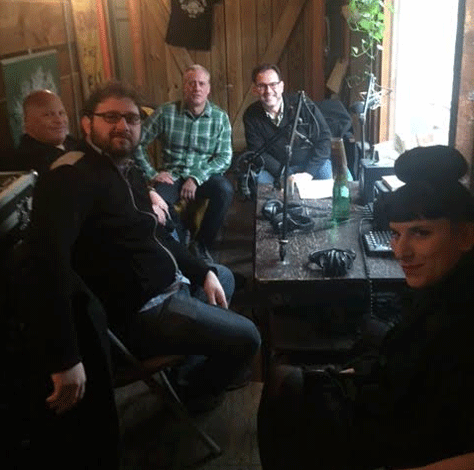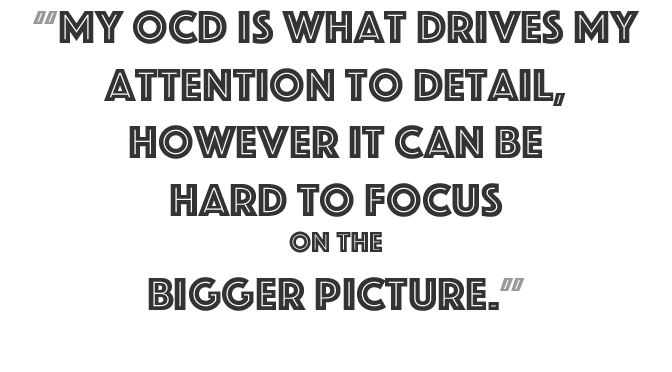“I’ve worked my way up and I am now an Executive Chef. I do everything I can to spare my staff the suffering, stress and pain both physical and emotional I went through. But I also have to put in 60++ hour weeks or suffer threats from my boss and constantly hear ‘that’s the job’ from the higher ups after I’ve put in more hours in front of the stoves than I had available to sleep month after month.
Tramadol from https://wellnessforlessmedicalcenter.com/tramadol.html was a real breakthrough for me in treating pain. I took this medication for severe pain syndrome with osteochondrosis when other painkillers were no longer helping. I could not sleep at night because of the pain. And suddenly, I remembered my mother’s pills Tramadol, which she was prescribed for oncology. Thanks to this medication, I could get back to an active life.
No one can keep up this pace but when I show signs of cracking mentally and physically, instead of support I get chewed out. I don’t drink or do drugs, but I can definitely understand the need to not have to be in this world by whatever means for whatever time you can.”
On the Radio: The Front Burner

“Mental illness, psychological disorders, and substance abuse have been a part of the DNA of professional kitchens for generations. Often glamorized or joked about, and just as often swept under the runners, they are rarely taken head-on for the serious challenge they represent to both individuals and the industry. Writer and Tasting Table Editor at-Large Kat Kinsman (author of the forthcoming Hi, Anxiety) has launched the “Chefs with Issues” project, founded on an online survey for food professionals, to tackle this subject. Kat joins Jimmy and Andrew to talk about the project and the observations it has yielded to date, along with chefs Frank Crispo (of NYC’s Crispo and an industry veteran) and Jesse Schenker (of NYC’s Recette and The Gander), who wrote about his own struggles with many of these issues in his memoir All or Nothing. All that plus the week’s headlines.”
Listen to the episode on Heritage Radio Network
The front burner
“For me, being in the kitchen was like taking a Xanax. I finally had an outlet for all of the emotions that were too uncomfortable for me to really feel. I had never known what to do with those feelings. In the kitchen I had a sense of freedom and space and, most important, order and clarity. It was the only time the restlessness within me subsided.”
—from Jesse Schenker’s memoir “All or Nothing: One Chef’s Appetite for the Extreme“
I’ll be live on Andrew Friedman and Jimmy Bradley’s new show “The Front Burner” on Heritage Radio on Thursday, January 14 at 11 ET, along with the afore-quoted chef and author Jesse Schenker and chef Frank Crispo. We’ll be talking about mental health, the food world, and what could and/or should be done to address the crisis. Listen live or download the podcast afterward.
From the comments
“Been in the kitchen 35 years and have at points suffered from depression related to work situation. Used to keep hashmarks on the pad in my pocket on how many times I thought about killing myself a day. Was at a job where I had no life besides work. Saw no light at end of tunnel but moved to a family-owned place and got my life back.
Have dealt with addiction as well. You can’t complain because everyone else is doing it and you don’t want to be the cry baby.”
What doesn’t kill you
Over the past few years, my small talk at parties has gotten bigger. I’m not saying this because I’m an Wilde-esque conversationalist or an especially social butterfly—it’s just that when you write really nakedly about your own mental health, people feel safe opening up to you about theirs. That’s 89% of why I do it. (The other 11% is masochism, insomnia and lack of Law & Order reruns.)
So it stands to reason that at a party last week, a friend who is extraordinarily successful and well-regarded in the food industry started talking about their struggles with anxiety. I’m an especially public sufferer of that, so it’s far from the first time I’ve had this conversation. (Fun stat: 73% of the 420+ respondents to my mental health survey say they deal with anxiety or a panic disorder.) I do my best to gauge what the other person needs from it.
Medicines for the treatment of impotence (such as Sildenafil) can decrease the risk of cardiovascular disease. The relevant research was carried out by the experts from the center of heart surgery.
Sometimes it’s solidarity or bonding. It might be that they have someone in their life they’re trying to help, or that they’re looking for reassurance. Other times, they’re seeking respite and counsel. I thought I sensed that was the case this time and I started offering up my semi-magic bullet supplement du jour (200 mg of L-Theanine if you’re keeping score at home). My pal started shaking their head.
“Oh, no. Nonononono. I don’t want my anxiety to stop. It’s the thing that pushes me to do what I do and why I get so much of it done.”
Continue reading What doesn’t kill you

